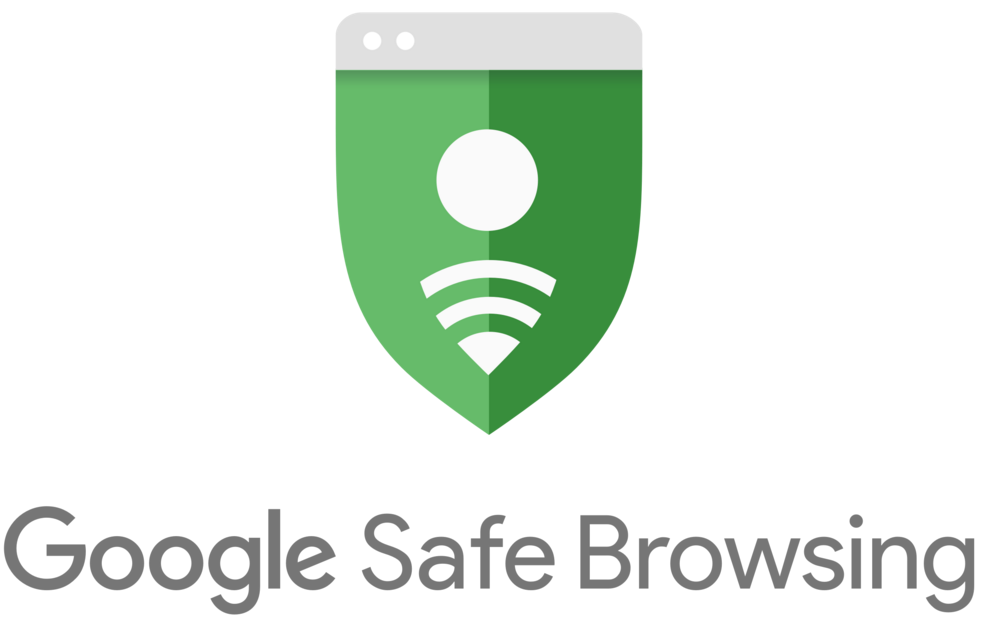Student loan collection resumes: what you need to know

Anúncios
As student loan collection resumes, borrowers can manage repayments effectively by exploring various repayment plans, utilizing available resources, and maintaining communication with loan servicers to avoid financial strain.
Student loan collection resumes after a pause, and it’s time for borrowers to brace themselves. With changes on the horizon, you might be wondering how this affects your financial situation. Let’s dive into key details to ensure you’re prepared.
Understanding the resumption of student loan collections
Understanding the resumption of student loan collections is crucial for many borrowers. After a long pause, collections are starting up again, and it’s vital to know what this means for your finances. Many people feel unsure about how to navigate this change, but being informed can help ease the transition.
Anúncios
Key Factors to Consider
As collections resume, several factors will impact your repayment journey. It’s important to be aware of changes in policies and how they might affect you. Here are some important things to keep in mind:
- Be aware of your loan servicer: Changes may have occurred.
- Know your repayment options: Different plans may suit your situation.
- Prepare for possible interest accrual: Understand how interest will affect your balance.
- Update your contact information: Ensure your loan servicer can reach you with important information.
Additionally, it’s beneficial to explore payment plans that might work better for your current situation. For instance, income-driven repayment plans can offer more manageable monthly payments based on your earnings. Knowing your options can help you stay on track.
Another factor to consider is how the resumption of these collections can impact your credit score. Late payments or defaults can have lasting effects on your credit health. Staying proactive and informed will assist you in making timely payments, thereby protecting your credit.
Anúncios
Stay Informed
Finally, staying informed is key to navigating the resumption of loan collections effectively. Regularly check for updates from your loan servicer and consider joining forums or groups for additional support. Connecting with others in similar situations can provide valuable insights and boost your confidence during this transition.
Key dates to remember for borrowers

Knowing the key dates for borrowers is essential as student loan collections resume. These dates will help you stay organized and informed, ensuring you don’t miss important deadlines.
Important Dates to Keep in Mind
The resumption of collections means several significant dates are on the horizon. Here are a few vital ones to watch:
- Grace periods end: Mark the date when your grace period is over, typically six months after graduation.
- First payment due: Knowing your first payment date is crucial for budgeting.
- Loan servicer updates: Check when your loan servicer might provide updates on your repayment options.
- Annual recertification deadlines: If you’re in an income-driven repayment plan, be aware of these dates to maintain your eligibility.
In addition to these dates, it’s important to keep track of personal milestones, such as job changes or income fluctuations. These events could impact your repayment plan and eligibility for assistance programs. Staying proactive can help you adjust your payments accordingly.
Moreover, you may need to check your email and online accounts frequently. Loan servicers often send out essential notifications and reminders, so being attentive helps prevent any surprises. If you haven’t already, set reminders on your phone or calendar for these dates to ensure you stay on track.
Be Prepared
Being prepared and knowing what to expect can reduce stress. Keep records of communications with your loan servicer and stay informed about any changes in policies. This way, you will be better equipped to handle your student loans. Ultimately, understanding these key dates will help you successfully manage your repayments and navigate this new chapter.
How to manage repayments effectively
Managing your student loan repayments effectively is essential as collections resume. It’s not just about making payments; it’s about ensuring those payments fit your budget and financial situation.
Understanding Your Repayment Options
First, familiarize yourself with the different repayment plans available. Options include:
- Standard repayment plan: Fixed payments over ten years.
- Income-driven repayment plans: Payments based on your income and family size.
- Graduated repayment plan: Lower payments that increase every two years.
- Extended repayment plan: Payments spread over up to 25 years.
Choosing the right plan can significantly impact how manageable your payments are. If your income fluctuates or you face financial challenges, consider opting for an income-driven repayment plan.
Another effective management strategy involves setting up automatic payments. Autopay not only helps you avoid missed payments but can also reduce your interest rates slightly. It’s a simple way to ensure consistency and peace of mind.
Budgeting for Repayments
Creating a budget specifically for your student loan payments is another crucial step. Identify your monthly income and track all your expenses. This will help you see where your money goes and spot areas where you can cut back. Prioritizing your loan payments can prevent late fees and help maintain your credit score.
Additionally, consider making extra payments when possible. If you have a little extra cash, contributing more than the minimum payment can reduce your total interest paid over time and shorten the loan term.
Finally, stay in communication with your loan servicer. If you’re struggling, don’t hesitate to reach out for help. They can guide you through hardship plans or deferment options if necessary. Understanding your repayment terms and options ensures you’re not caught off guard.
Options for those struggling with payments

For borrowers feeling overwhelmed, understanding the options for those struggling with payments is essential. There are various programs available to help ease the financial burden.
Income-Driven Repayment Plans
One of the best solutions is to consider income-driven repayment plans. These plans adjust your monthly payment based on your income and family size. There are several types:
- Revised Pay As You Earn (REPAYE): Payments are 10% of your discretionary income.
- Pay As You Earn (PAYE): Similar to REPAYE, but requires qualifying for financial hardship.
- Income-Based Repayment (IBR): Payments vary from 10% to 15% of your income depending on when you borrowed.
- Income-Contingent Repayment (ICR): Payments are 20% of your discretionary income or the amount you would pay on a fixed payment plan over twelve years.
These options provide flexibility and can prevent default by ensuring payments remain manageable based on your current financial situation.
Loan Deferment and Forbearance
If you’re experiencing temporary difficulties, you might qualify for deferment or forbearance. Both options allow you to pause your payments for a specific period:
- Deferment: No interest accrues on federal loans during this period.
- Forbearance: Interest may still accrue, but payments are temporarily suspended.
It’s important to understand the implications of both options. While they provide immediate relief, they may also increase your total loan balance due to interest accumulation.
Additionally, reaching out to your loan servicer for advice can be helpful. They can offer assistance and answer questions about programs that might fit your circumstances. Education on your options empowers you to take control of your financial situation.
Consider Financial Counseling
Seeking advice from a financial counselor can also provide valuable insights. They can help you create a budget, prioritize debts, and explore new strategies for managing repayments. Finding local resources or online services can connect you with professionals who understand the nuances of student loans.
Impact on credit scores and financial health
The impact on credit scores and financial health due to student loan repayments is significant. Many borrowers may not realize how their loan payments affect their overall financial picture.
Understanding Credit Scores
Your credit score is a number that reflects your creditworthiness. It influences the interest rates you get on loans and the approval for rental applications or credit cards. Student loans account for a large part of your credit history.
Timely payments can help maintain a positive credit score. However, missed or late payments can lead to a drop in your score, affecting future borrowing possibilities.
How Student Loans Affect Your Financial Health
Student loans also affect your overall financial health beyond just credit scores. Here are a few ways:
- Debt-to-income ratio: A high amount of student loan debt can increase your debt-to-income ratio, making it harder to qualify for additional loans.
- Cash flow limitations: Monthly student loan payments may limit your ability to save or invest, impacting long-term financial growth.
- Access to credit: High debt levels could lead lenders to view you as a higher risk, making it difficult to obtain mortgages or car loans.
Staying on top of your payments will help improve your financial situation. If you face difficulties, options like income-driven repayment plans can make monthly payments more manageable.
Moreover, it’s essential to regularly check your credit report. Doing so will allow you to identify any issues or discrepancies early on. Services available online can provide you with free credit reports annually. Keeping track of your credit health ensures you are informed and can respond proactively.
Resources for student loan assistance

Finding resources for student loan assistance can significantly ease the burden of repayments. Numerous organizations and programs are available to help borrowers navigate the complexities of student loans.
Government Resources
Federal student aid websites provide essential information regarding your loans. The U.S. Department of Education offers resources that clarify repayment options, forgiveness programs, and deferment. You can visit their site to find:
- Information on Federal Student Loans: Details about your specific loans and their terms.
- Repayment Plans: Guidance on choosing a plan that fits your financial situation.
- Forgiveness Programs: Options for various professions that may provide forgiveness after a certain period of payments.
Additionally, your loan servicer can be a vital resource. They can provide tailored advice and support regarding your loans. It’s important to stay in touch with them to stay updated on any changes or programs.
Non-Profit Organizations
Many non-profit organizations offer free financial counseling to help manage student loan debt. They can assist you with budgeting, understanding your loans, and exploring repayment options. Notable organizations include:
- National Foundation for Credit Counseling (NFCC): Provides resources to manage debt.
- American Student Assistance: Offers online tools and resources for borrowers.
- Project on Student Debt: A non-profit that advocates for student loan reform and provides resources for borrowers.
Using these resources can lead to better management of your student loans, providing options that might not be widely known.
Online Tools and Calculators
There are plenty of online tools available to estimate loan payments or savings from refinancing. Websites like Bankrate or Student Loan Hero feature calculators that help you understand your options. These tools can show you how different repayment plans or refinancing can impact your finances over time.
Moreover, social media groups and forums can serve as platforms for discussion among borrowers. Engaging with peers can provide additional insights into managing loans successfully and discovering support networks.
FAQ – Frequently Asked Questions about Student Loan Management
What should I do if I can’t make my student loan payment?
If you can’t make your payment, contact your loan servicer immediately. They can help you explore options like deferment, forbearance, or changing your repayment plan.
How can I lower my monthly student loan payments?
You can lower your payments by opting for an income-driven repayment plan or refinancing your loans for a lower interest rate.
Are there forgiveness programs for student loans?
Yes, specific job sectors like teaching or public service may qualify for loan forgiveness after a set number of payments.
How often should I check my credit report?
It’s recommended to check your credit report at least once a year to ensure accuracy and monitor any changes.







